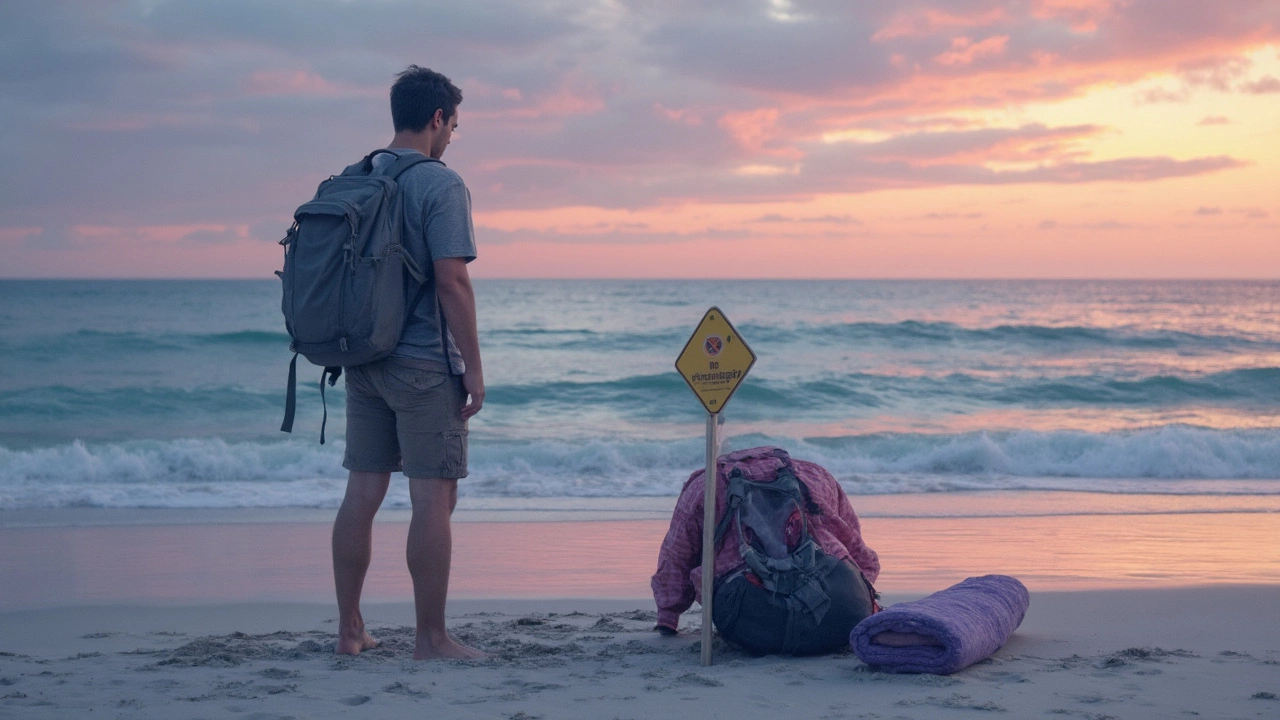Florida Beach Laws: What You Need to Know Before Camping
Thinking about pulling over to the sand for a night under the stars? Florida’s coastline looks tempting, but the rules vary from one stretch to the next. Knowing the basics can keep you out of trouble and let you enjoy the surf, sunrise, and salty breeze without a ticket.
Parking and Overnight Stays
Most public beaches in Florida forbid overnight parking. The typical sign reads “No Overnight Parking” and applies to both cars and RVs. However, a few counties allow 24‑hour parking in designated lots, usually for a fee. Check the local county or city website before you arrive – a quick search for “[Beach Name] parking rules” often pulls up the latest info.
If you find a legal lot, arrive early. Spots fill up fast during summer weekends, and some municipalities enforce a maximum stay of 12‑hours. Set a timer on your phone so you don’t accidentally overstay. Remember, even where overnight parking is allowed, you can’t set up a full‑blown campsite with chairs, tables, or grills unless the area specifically permits it.
What’s Allowed and What’s Not
Camping gear is a gray area. In most places, you can park and sleep in your vehicle, but you can’t pitch a tent on the sand. Fires are strictly prohibited on all public beaches – the fine for an illegal fire can be steep, and the risk of a wildfire is real.
Pets are welcome on many Florida beaches, but they often have to be on a leash and are not allowed on the sand during certain hours (usually sunrise to sunset). Bring a waterproof bag for pet waste and keep the area clean.
Alcohol consumption is another common restriction. Some beaches allow it in designated areas, while others ban it outright. If you’re unsure, it’s safest to leave the bottle at home.
For RVers, many big‑box retailers like Walmart, Cracker Barrel, and some rest‑area truck stops welcome overnight stays, but they’re not “beach” locations. If you really want a beachfront experience, look for private campgrounds that sit right on the water – these sites charge a nightly fee but give you all the amenities you need.
Finally, always respect private property. Beaches that look public can be owned by hotels, condominiums, or private clubs. Trespassing signs are easy to miss, but the penalty can be a hefty fine or an arrest. If a sign says “Private Property – No Trespassing,” turn around.
Bottom line: do a quick check on the specific beach you plan to visit, obey posted signs, and keep your stay low‑key. With a little planning, you’ll enjoy Florida’s famous shoreline without the hassle of fines or a police visit.
-
 VIEW POST
VIEW POSTCan I Sleep on the Beach in Florida? The Real Rules and Best Alternatives
Apr, 17 2025|0 CommentsThinking about catching some sleep right on the sand in Florida? The rules here aren’t as easygoing as you might expect. This article breaks down whether it’s legal to sleep on Florida beaches, what can happen if you try, and which beaches actually allow overnight stays. You’ll also get tips for safe, comfortable beach camping and honest advice on what to expect when planning a sandy snooze in the Sunshine State.